PROJECTS
Collaboration is central to Fashion for Good’s mission to make all fashion a force for good. Through consortium-driven pilots and projects, we leverage efficiencies and work together to unite brands, innovations and manufacturers to quickly validate and implement technologies that address critical challenges across the supply chain.
Dive in to discover our projects to date and our learnings along the way.
See what we have been up to:

The Next Stride: Bio-based Materials for Footwear Soles
“The Next Stride: Bio-based Materials for Footwear Soles” aims to validate the performance and environmental impact of bio-based polymers as sustainable alternatives to the fossil fuel-derived materials currently used in footwear soles. The objective is to collectively de-risk the transition to these “next-generation” materials by rigorously testing their technical properties and assessing environmental benefits. Ultimately, the purpose is to accelerate the adoption of these bio-based solutions and pave the way for a more sustainable footwear industry.

Beyond50 Denim: Combining Cottonised Hemp And Green Chemistry
“Beyond50 Denim: Combining Cottonised Hemp And Green Chemistry” aims to validate the performance and environmental impact of cottonised hemp processed with green chemistry to act as a true alternative to cotton in denim applications. The project goal is to evaluate the performance of SEFF’s cottonised hemp fibre in combination with Fibre52’s bio-friendly chemistry solution within denim fabric applications with a total hemp content of 50% and above. The fabrics will be benchmarked against conventional 100% cotton denim with a specific focus on handfeel and aesthetic characteristics.

Price Parity Toolkit
The Price Parity Toolkit (PPT) was designed to help bridge the price gap between next-gen* and conventional materials. Developed by Fashion for Good with the support of Canopy, this industry-supported framework introduces a financing mechanism that decouples price premiums at early stages of the supply chain to enable adoption and drive the scale of lower-impact materials.

Fiber Club
Fashion for Good’s Fiber Club unites brands and innovators to fast-track the use of sustainable materials in the fashion sector. These partnerships offer brands early access to cutting-edge fibres, ensuring beneficial supply agreements and easier incorporation into their supply chains. Fiber Club aims to not only shift the cost structure but to help align brands in a very fragmented and competitive industry.
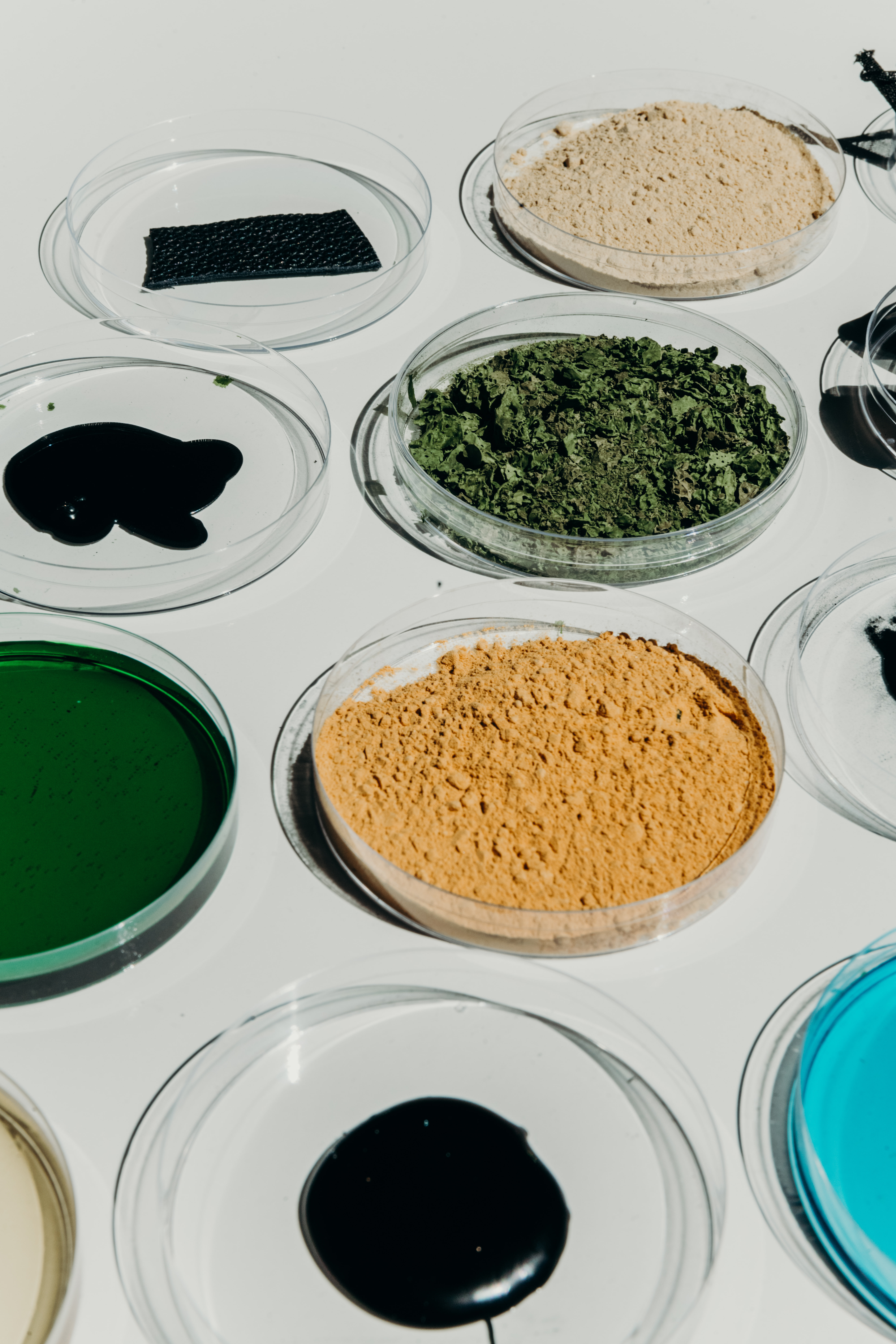
Advanced Processing Matrix
The Advanced Processing Matrix (APM) aims to continue Fashion for Good’s efforts to accelerate the shift from wet to mostly dry processing in the fashion industry by validating innovative textile processing technologies with potential to drive CO₂e reduction, alongside improvements in water and chemical usage. The tool serves as the knowledge resource for Future Forward Factories aiming to transform facilities into near Net-0.
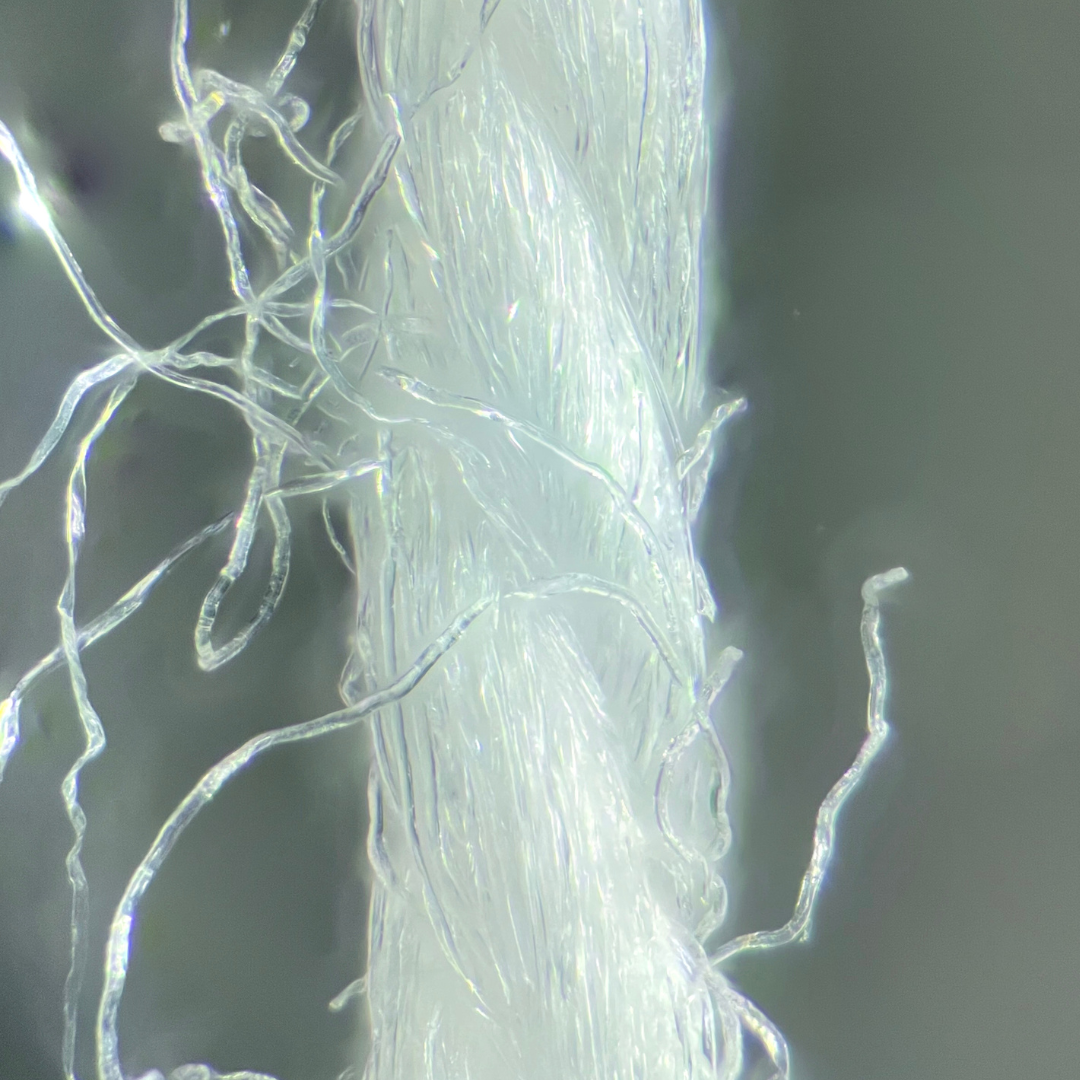
Behind the Break
“Behind the Break,” is a project aimed at exploring textile fibre fragmentation. The research aims to identify the root causes of fibre shedding during manufacturing, enhance existing test methods, and inform future industry best practices and policies to reduce textile pollution. A report accompanies the project, providing an overview of existing knowledge gaps, recent developments, critical insights, and emerging opportunities for meaningful action within the fashion and textile industry.

Closing the Footwear Loop
The “Closing the Footwear Loop” project is a major initiative led by Fashion for Good, bringing together 17 leading fashion and footwear brands and their existing circularity programs to tackle the complex challenges of circularity in the footwear industry. The project aims to transform the current linear “take-make-dispose” model into a circular one.
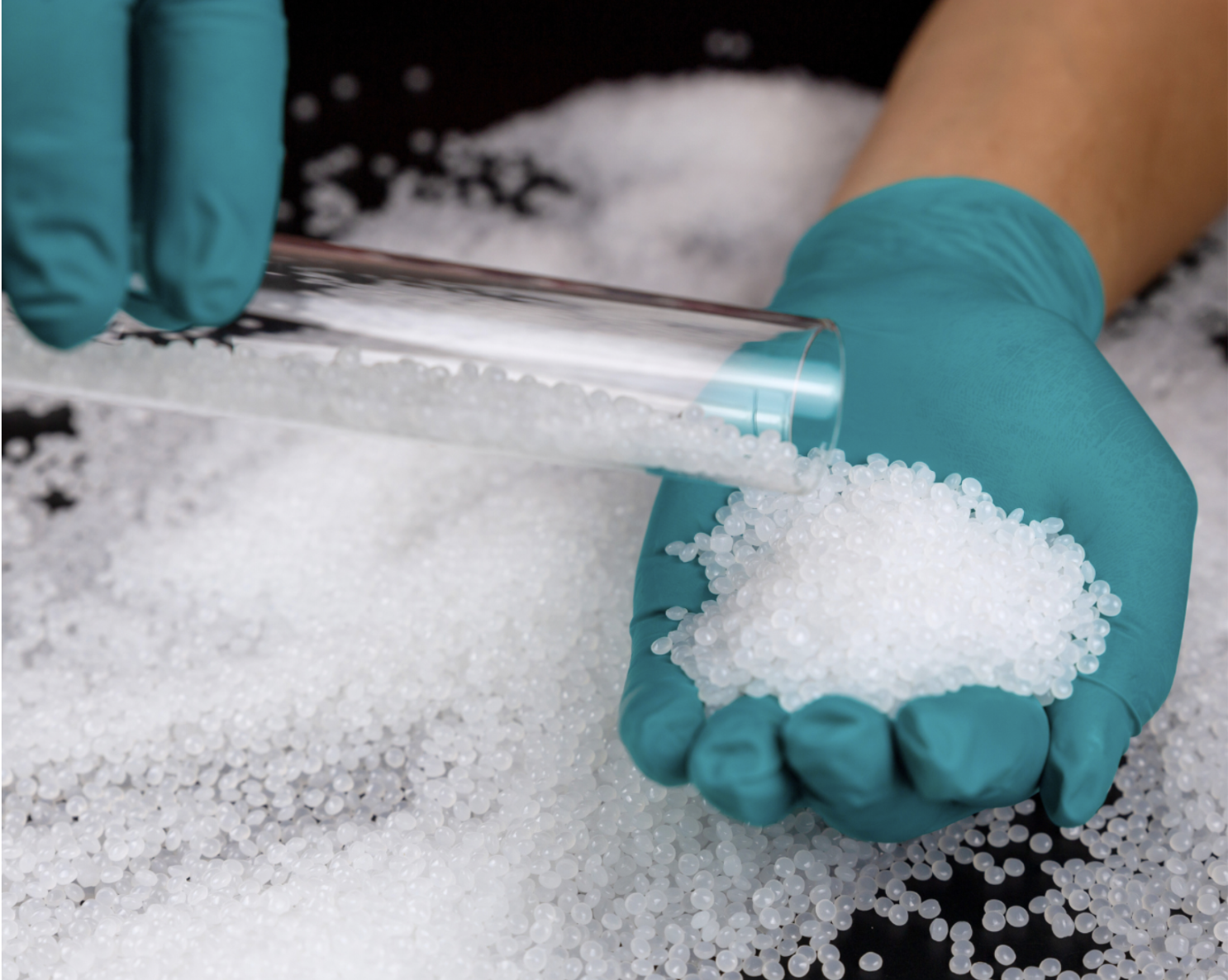
Feedstock Assessment for Biosynthetic Innovation
Feedstock Assessment for Biosynthetic Innovation, an initiative in collaboration with Bestseller and On aimed at accelerating the industry’s shift towards alternatives to fossil-fuel polymers. The assessment will be conducted in partnership with industry experts, the Nova Institute.
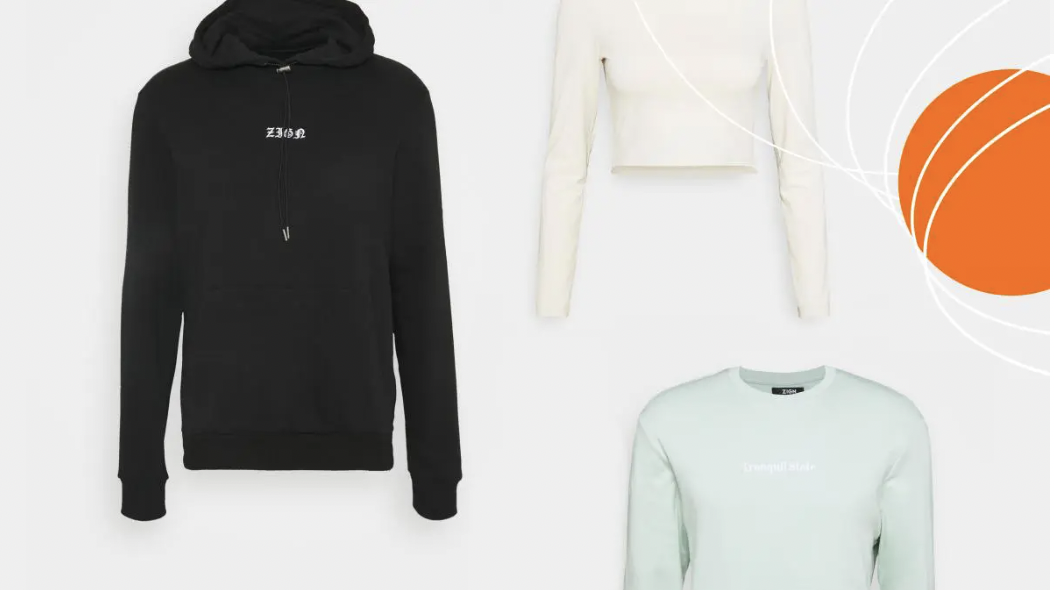
Piloting a Circularity Solution in E-commerce
This project was led by Fashion for Good, together with Zalando and circular.fashion, a Fashion for Good alumni innovator. The objective was to test the circularity.ID, a traceability solution designed by circular.fashion to increase resale and recycling opportunities for clothing at scale.
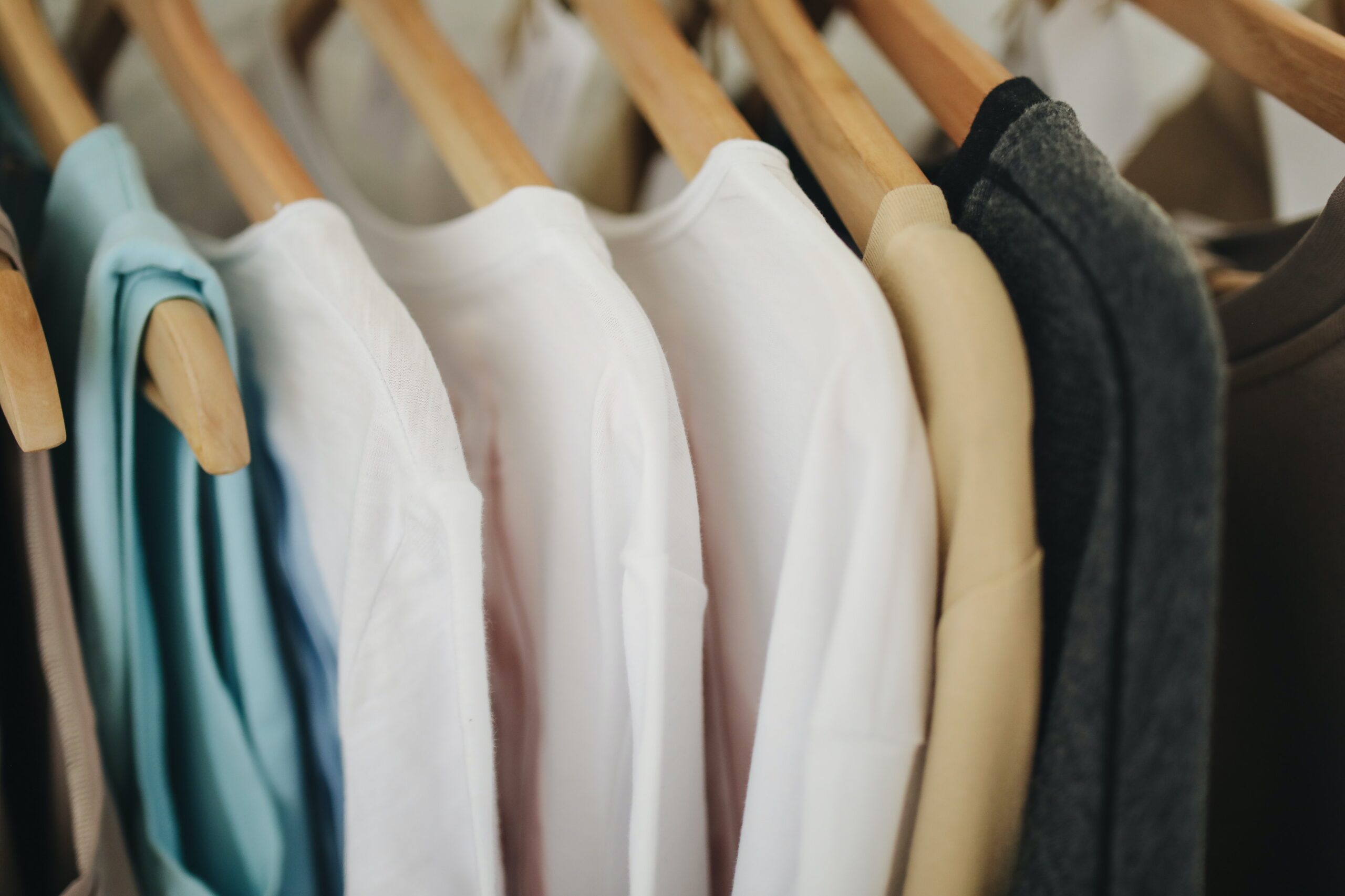
Sorting for Circularity Rewear
Fashion for Good expanded its Sorting for Circularity framework to address the challenge of sorting for rewearable textiles to understand better their resale potential and the demand across the second-hand market. We launched an 18-month initiative in January 2024 in collaboration with Circle Economy, brand partners adidas, Inditex, Levi Strauss & Co. and Zalando to enhance the sorting of rewearable textiles using innovative AI technologies. The project seeks to improve garment recovery for resale, promoting circularity in the fashion industry.

EU-Funded Projects
The European Green Deal and the European Commission’s Circular Economy Action Plan highlight textiles as one of the particularly important material streams with regard to circularity potential and environmental footprint.
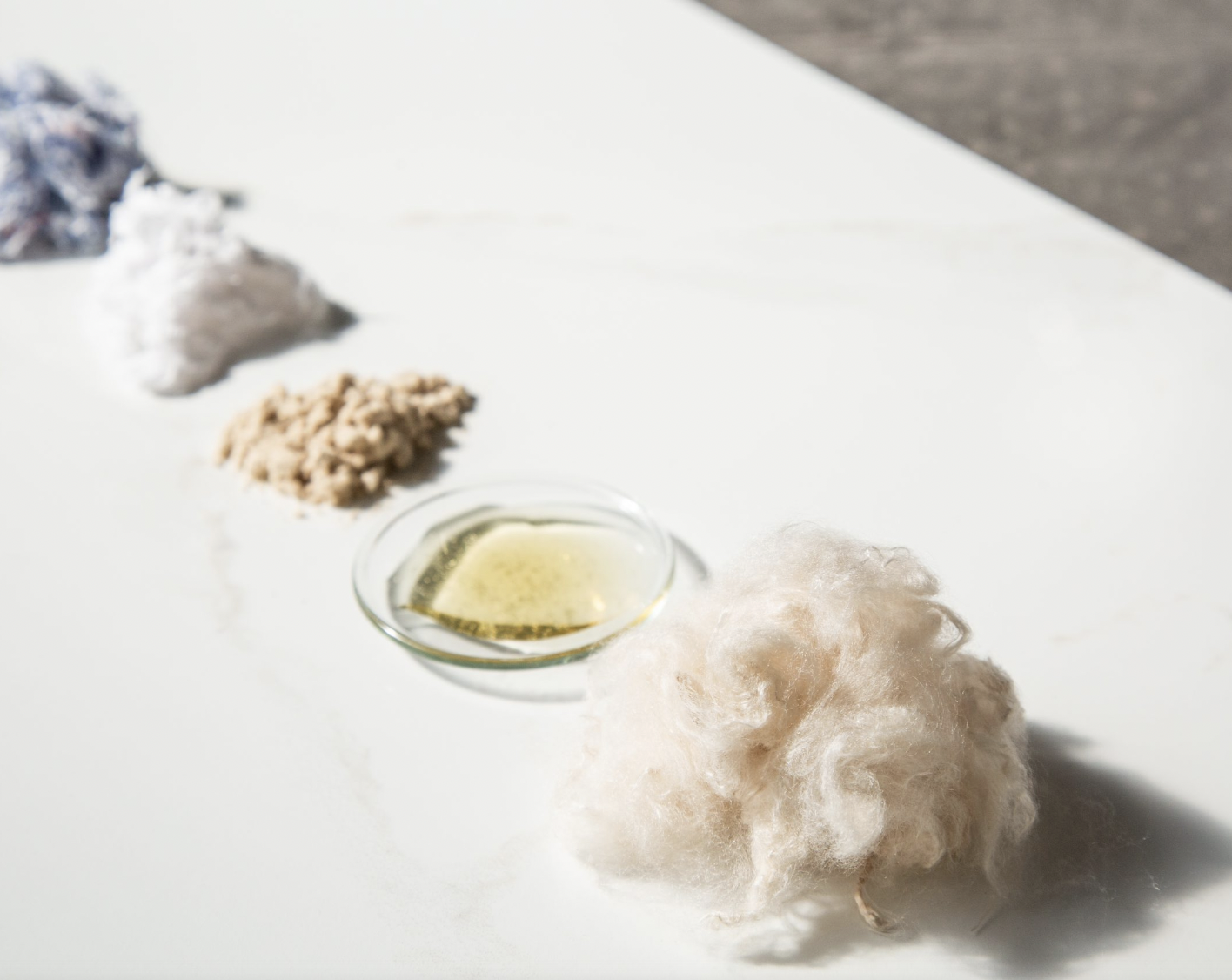
New Cotton Project
In a world first for the fashion industry, twelve pioneering players came together to break new ground by demonstrating a circular model for commercial garment production.

T-REX Project
The T-REX Project brings together 13 major players from across the entire value chain to create a harmonised EU blueprint and business opportunities for closed loop sorting, and recycling of household textile waste. Transforming end-of-use textiles, from waste, into a desired feedstock, and a commodity for new business models that can be adopted at scale.
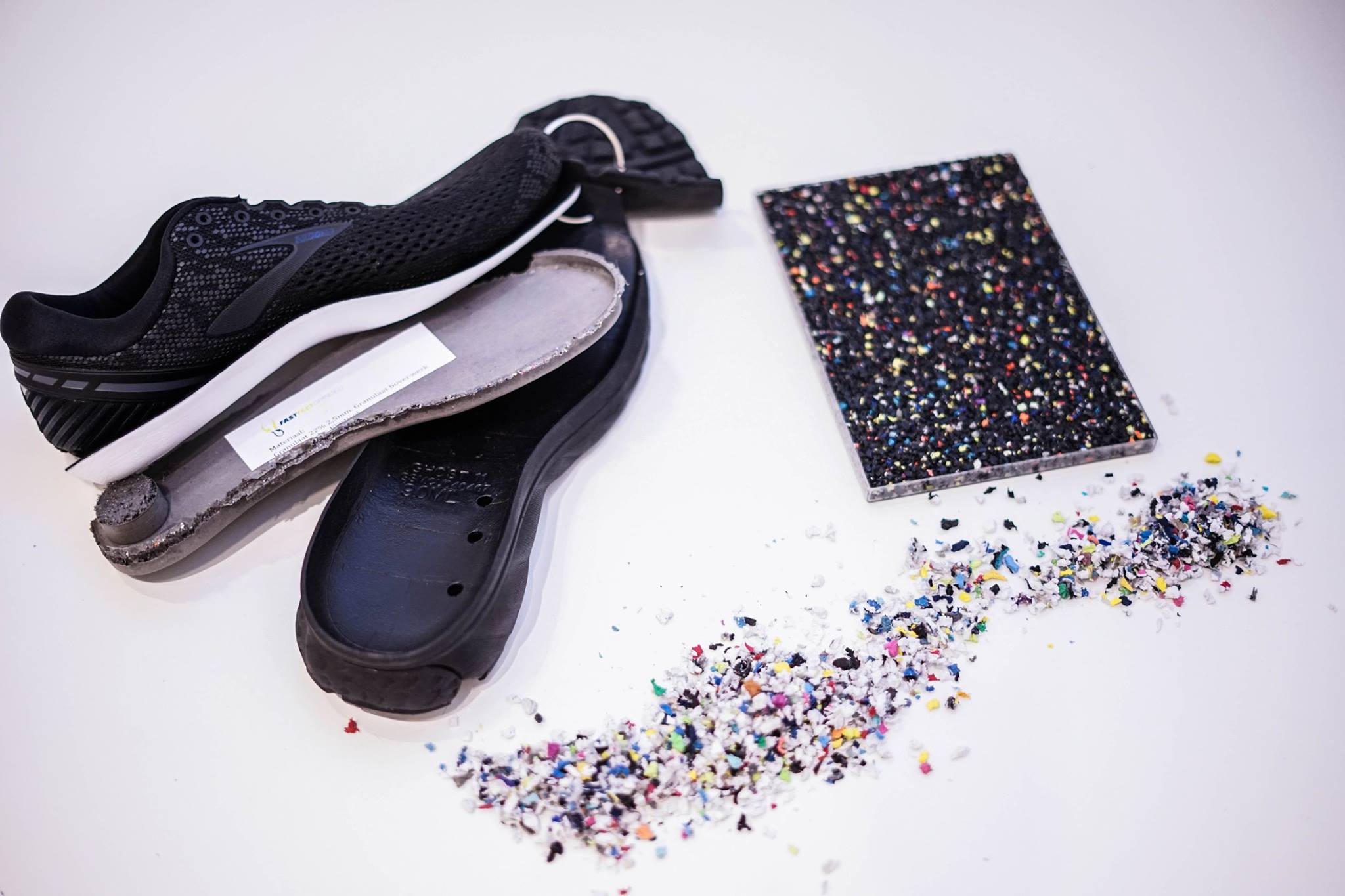
Fast Feet Grinded Collaborative Pilot
The aim of the pilot was to test and validate the FastFeetGrinded footwear recycling process by evaluating the quality of outputs and understanding the environmental impacts of the process. FastFeetGrinded is a company specialising in footwear recycling that accepts all types of footwear as feedstock to produce sorted material granulates with zero waste streams. FastFeetGrinded aims to deconstruct any type of pre- and post-consumer shoe, separating footwear into substituent components, which are then subsequently grinded down and processed to create material streams for repurposed use.
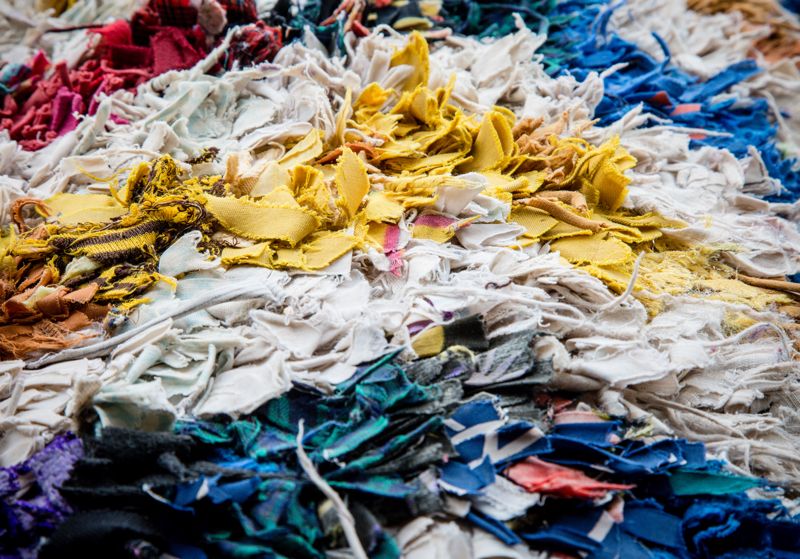
Tracing Textile Waste
Fashion for Good and Textile Exchange launched the Tracing Textile Waste project in 2023, a two-year, multi-stakeholder initiative to standardise classification and traceability of pre-consumer textile waste. Central to this effort was developing a minimum viable product (MVP) based on the Textile Exchange Reclaimed Material Declaration Form (RMDF).
Following the completion of the project, Textile Exchange has confirmed it will officially launch a revised RMDF, using the learnings and recommendations from this project. The focus now turns to enabling widespread adoption and supporting continuous refinement.
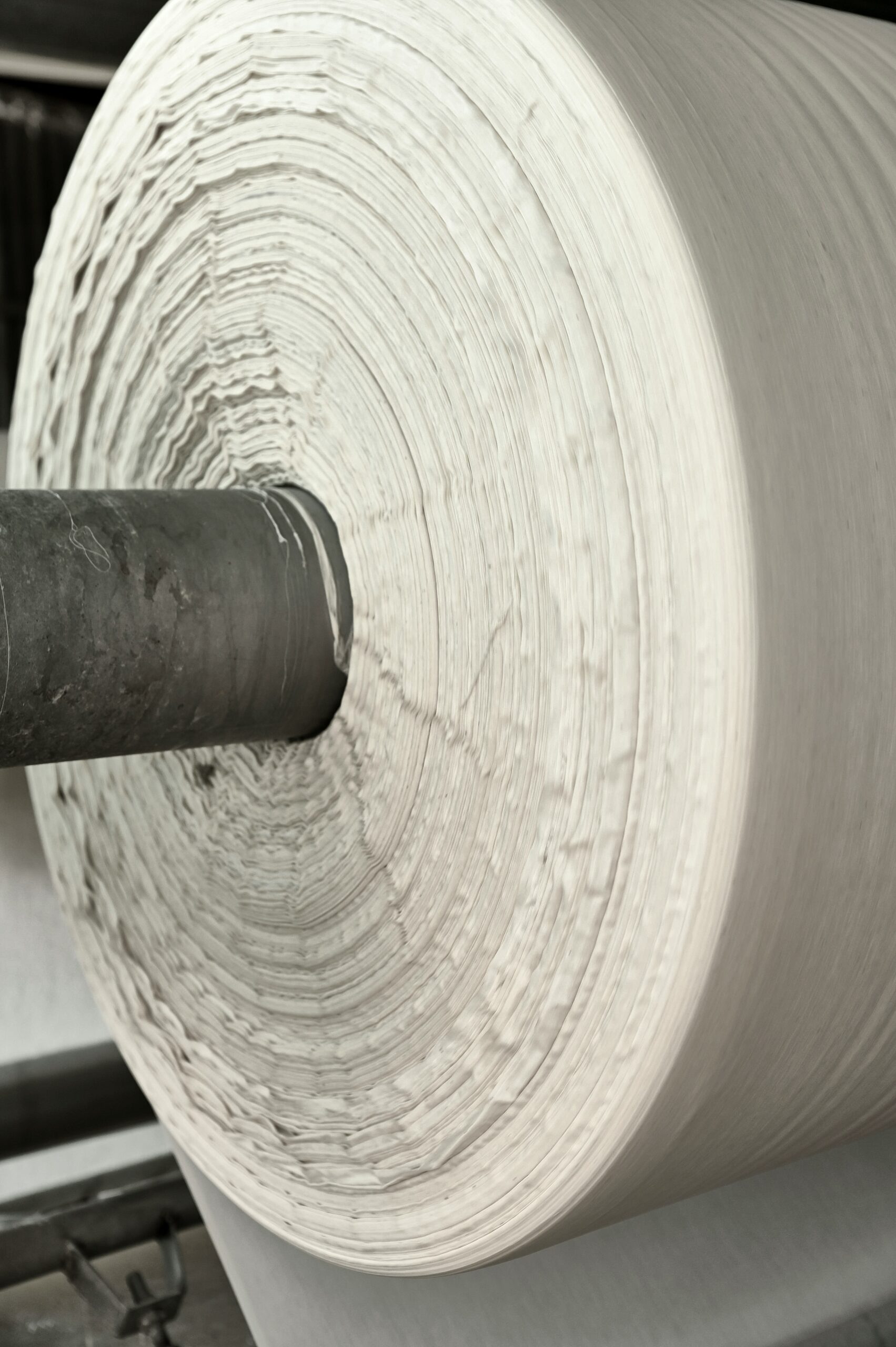
Textile Tracer Assessment
This project involved a detailed analysis and assessment of physical tracer technologies for the textile industry, aimed at improving the traceability of fibres and materials across the supply chain. It evaluated forensic and additive tracers as solutions to verify the origins of materials and strengthen transparency in the textile supply chain.

Viscose Traceability Pilot
In December 2020, Fashion for Good launched a pilot to test the TextileGenesis™ platform, a blockchain-based solution for tracing sustainable viscose fibres. This pilot involved several partners including Bestseller, Kering and Zalando, in addition to manufacturers Lenzing, ENKA and Tangshan Sanyou. The pilot’s aim was to test the TextileGenesis™ platform and trace responsibly sourced viscose through digital and physical means across the supply chain.

Organic Cotton Traceability Pilot
This project tested the feasibility of tracking organic cotton, from farms to retail, using on-product markers and blockchain technology.
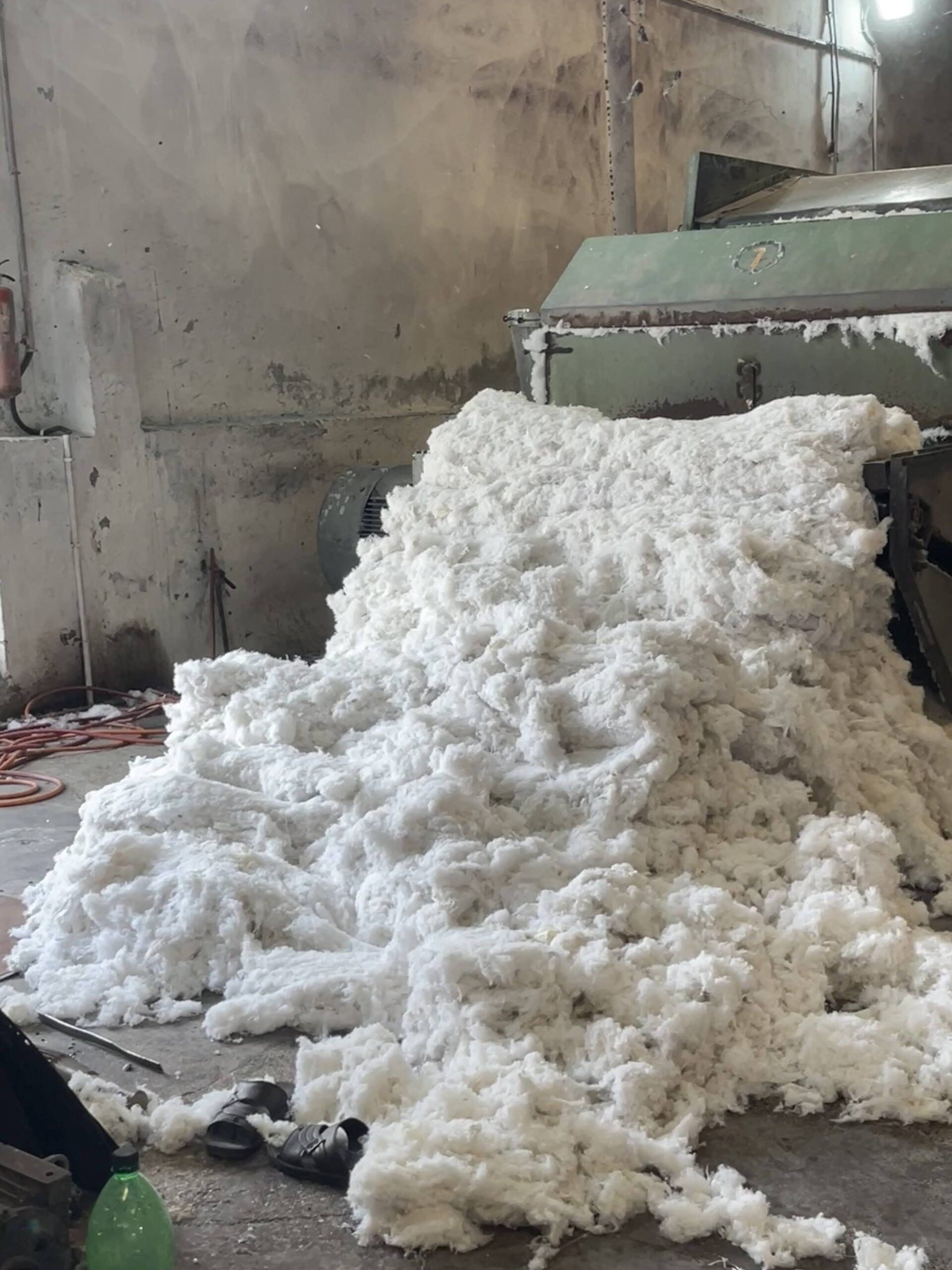
Manufacturing Market Gateways
Cost optimisation is crucial for scaling innovations. By reducing expenses, increasing operational efficiency, and securing high-quality feedstock, innovators can improve profitability and competitiveness. As the industry embarks on new ventures, strategic cost management becomes key to enhancing profitability, improving cash flow, and fostering a culture of continuous improvement. As a response to supporting innovators in building out these strategies, FFG has developed “Manufacturing Markets Gateway”, to support innovators with connections to selected industry partners, local exposure, sourcing feedstock opportunities and overall knowledge building.

Strategic Supplier Initiative
Scale is unlocked for sustainable innovation only when supply and demand are effectively connected—bringing together innovators, brands, and manufacturers—and when this opportunity is pursued through curated and meaningful partnerships. To achieve scale, careful planning, strong stakeholder engagement, adequate resources, and a flexible approach are essential. Transitioning from the pilot stage to full-scale implementation of sustainable technologies presents several significant challenges. Bridging the gap between small-scale trials and large-scale deployment requires addressing differences in requirements, resources, and complexities. Common issues include scalability concerns, such as adapting technology to increased volumes and integrating it with existing systems and machinery. Limited funding options and unclear implementation strategies also pose barriers, making the scaling process difficult. In response to these challenges, we have developed the Strategic Supplier Initiative (SSI) to support FFG partners and innovators in successfully scaling their sustainable processes.

Sort to Sustain
To address the gaps in post-consumer feedstock for the development of textile-to-textile recycling in India, FFG has initiated the Sort to Sustain (STS) Project, in line with the broader ambition of the Re-START Alliance. This project focuses on enhancing the quantity, quality, and price of feedstock to support the recycling industry. The project aims to establish a circular textiles system in India by creating a robust collection and sorting ecosystem for widespread recycling implementation. Leveraging insights from the Sorting for Circularity India project, it seeks to scale sorting and pre-processing infrastructure. The goal is to support the expansion of at least four waste enterprises and set up their Textile Recovery Facilities (TRFs) by 2030.
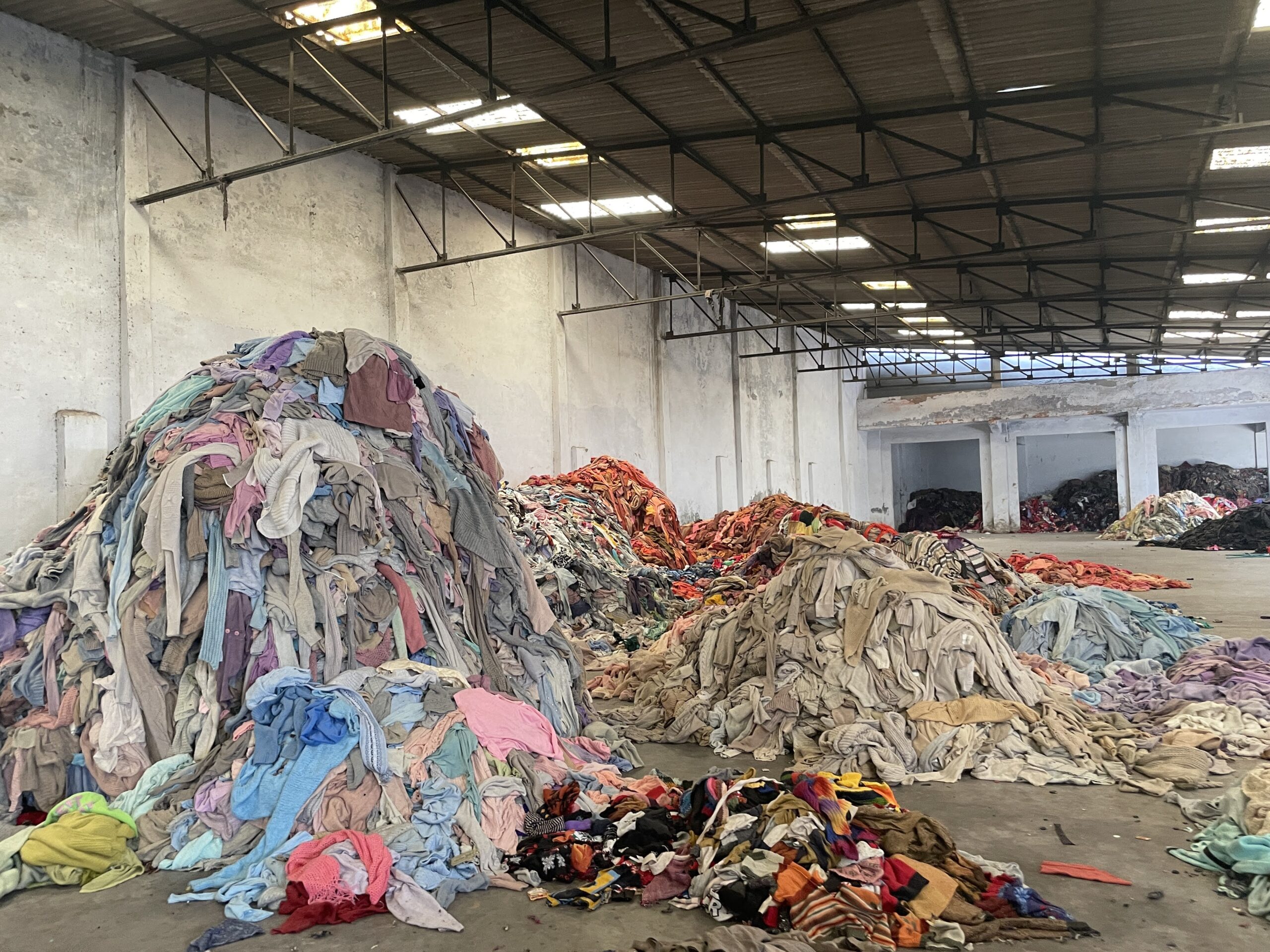
World of Waste
World of Waste is an online tool dedicated to uniting industry-wide efforts to develop and disseminate data on textile waste. The platform consolidates data from individual studies by partnering with ecosystem players.

Sorting for Circularity India
This project was designed to organise and optimise India’s textile waste supply chain. By evaluating various waste streams for collection, sorting, and pre-processing, the initiative aimed to enhance circularity in textiles. It sought to improve collection and sorting systems, foster recycling infrastructure, and introduce innovative solutions to generate new revenue streams and next-generation materials from textile waste-reducing reliance on virgin resources and minimising landfill and incineration.
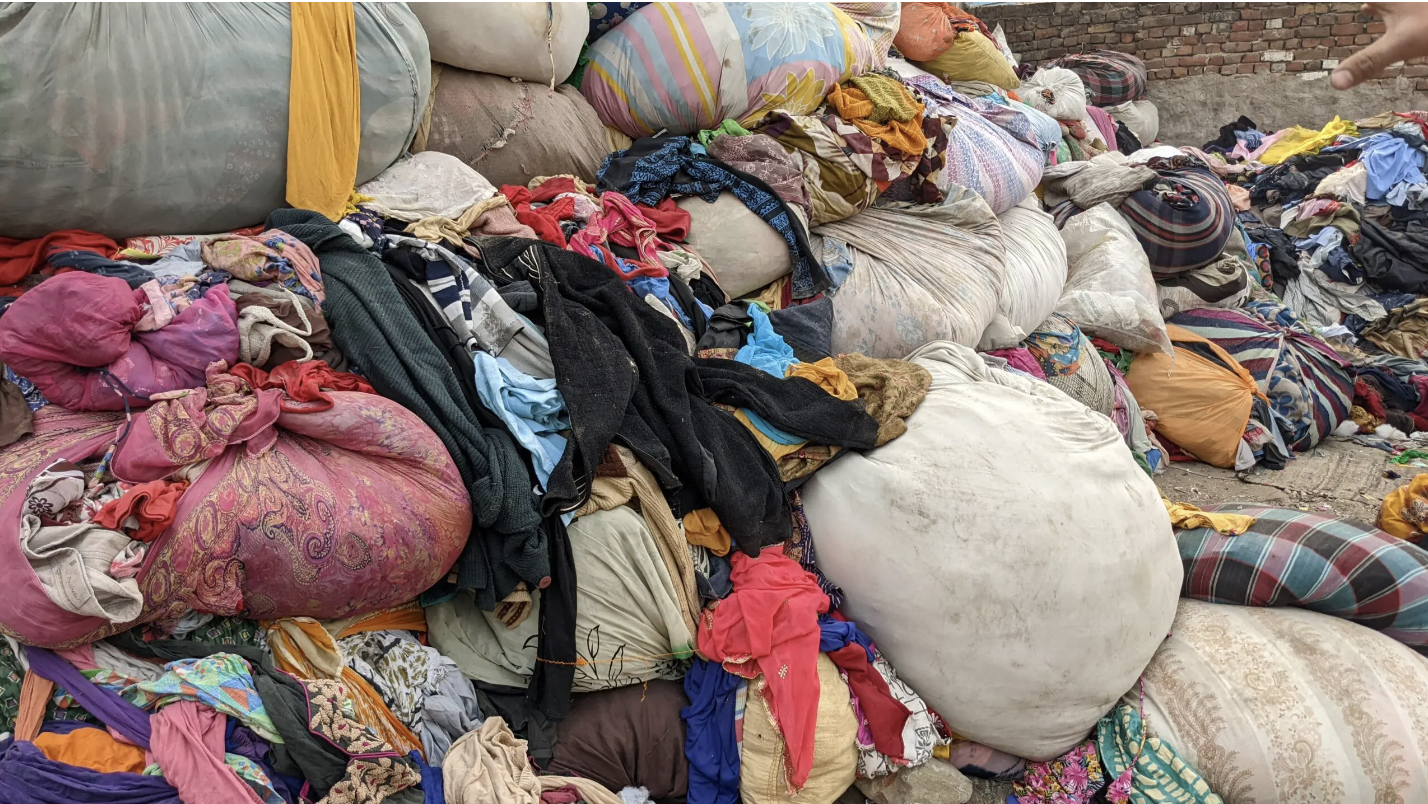
Sorting for Circularity India: Post-Consumer Pilot
India generates around 3,944k tonnes of post-consumer textile waste annually, with 48% viable for recycling feedstock, though inadequate sorting and recycling systems prevent full utilisation. This project involved two primary pilots that tested sorting innovations: Matoha’s FabriTell desktop scanner for semi-automated sorting and PICVISA’s ECOSORT for fully automated sorting. The pilots aimed to assess these technologies’ ability to categorise waste by fibre and colour efficiently, ultimately facilitating quality feedstock production for recycling. Initial findings suggest India could effectively harness a closed-loop textile recycling system, with cotton and polyester blends as dominant waste types.
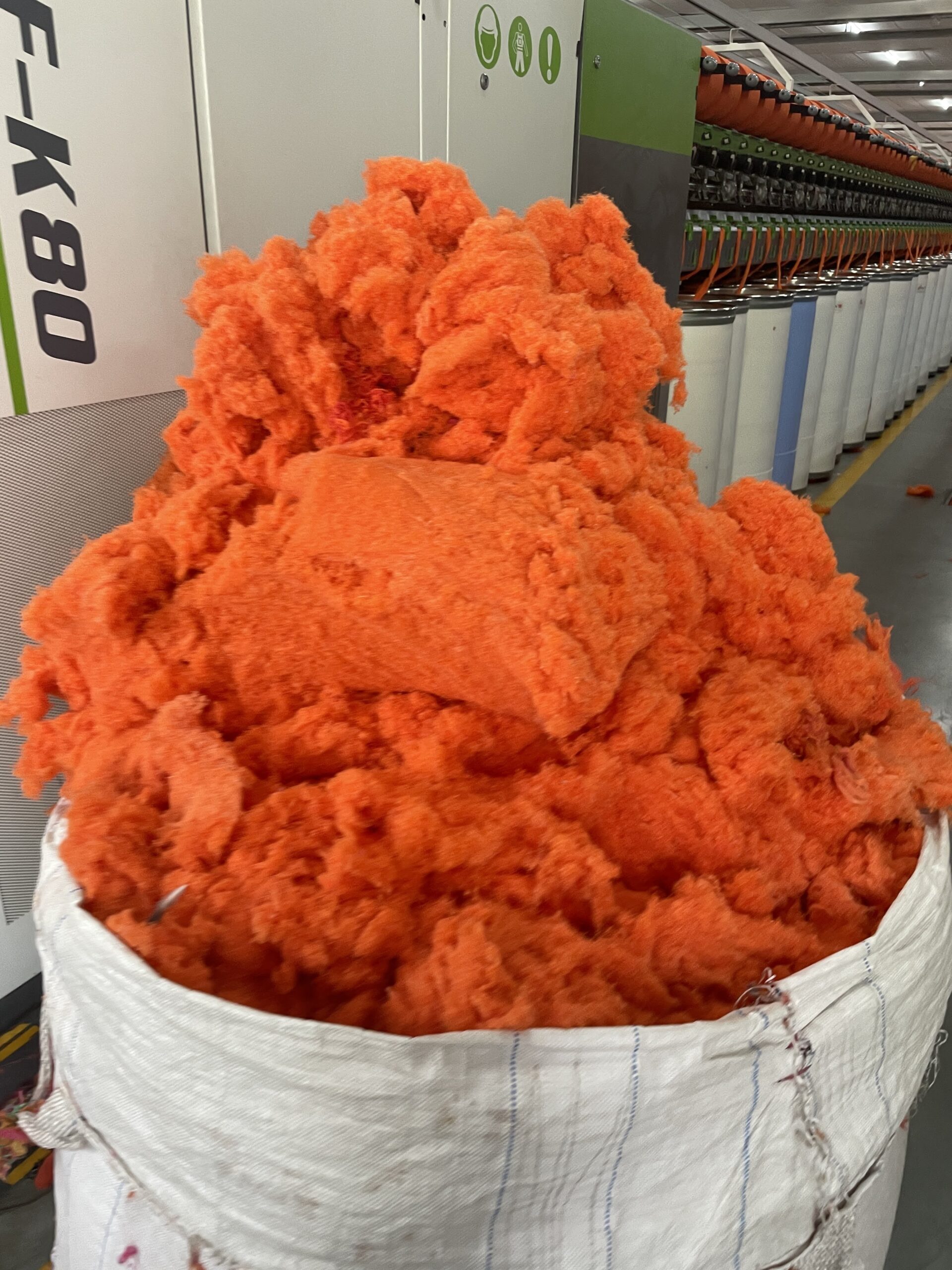
Sorting for Circularity India: Pre-Consumer Pilot
The Sorting for Circularity India Pre-Consumer Pilot aimed to organise the Indian textile waste market by establishing a circular economy that maximises value recovery from textile waste. This pilot addressed pre-consumer waste (factory floor cutting waste) and aimed to demonstrate a 360° closed-loop system, where factory waste is segregated, digitally traced, and then processed by recyclers to produce new fibres, which are returned to the production chain. The initiative sought to enhance transparency, traceability, and efficiency in India’s textile waste management system.
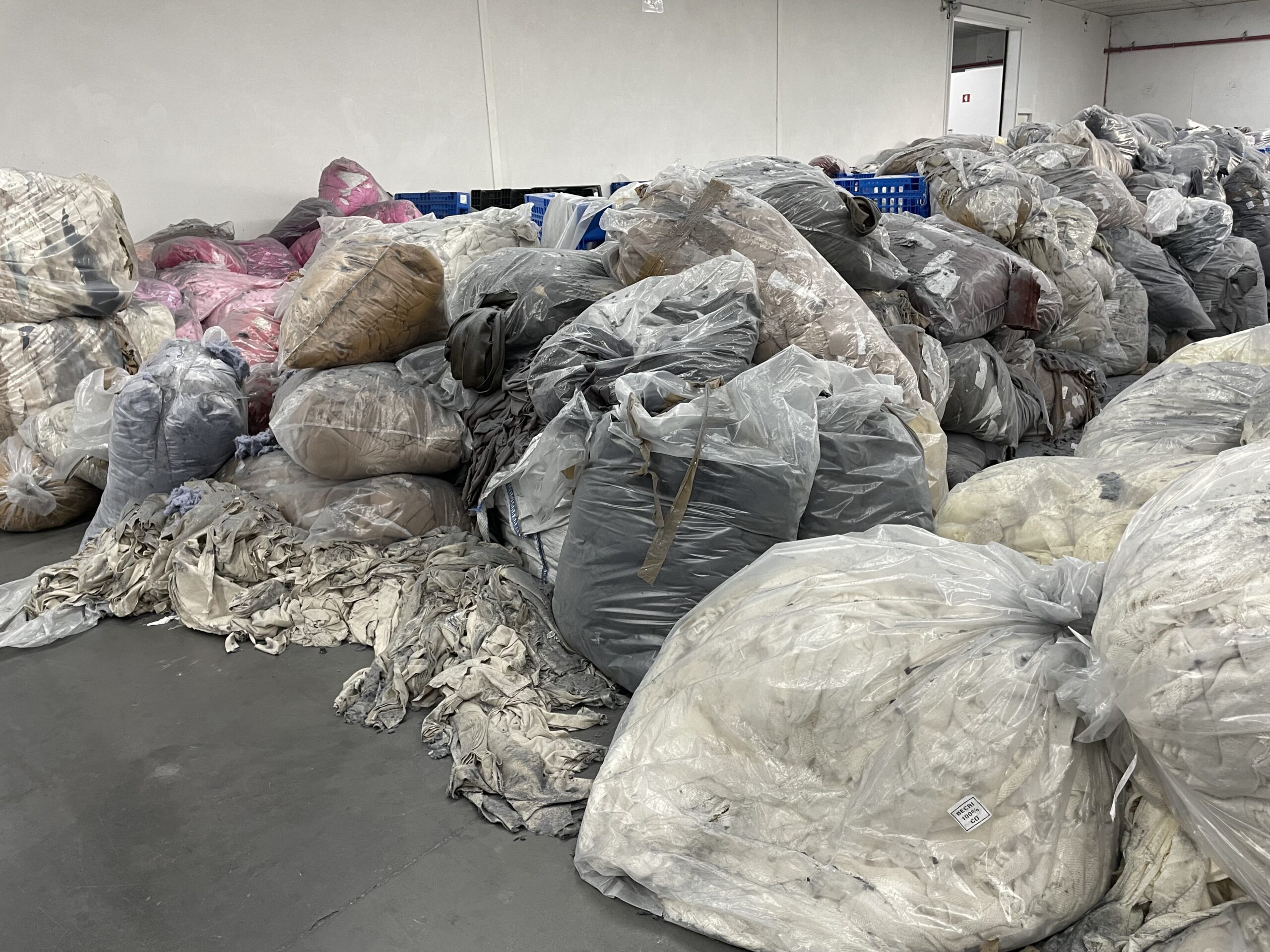
Sorting for Circularity USA
The project aims to assess the potential for fibre-to-fibre recycling in the United States. The project evaluated consumer behaviour around textile disposal and analysed post-consumer textile waste to determine its suitability for recycling. The goal was to promote circularity by improving textile collection systems and supporting the development of recycling infrastructures and technologies.
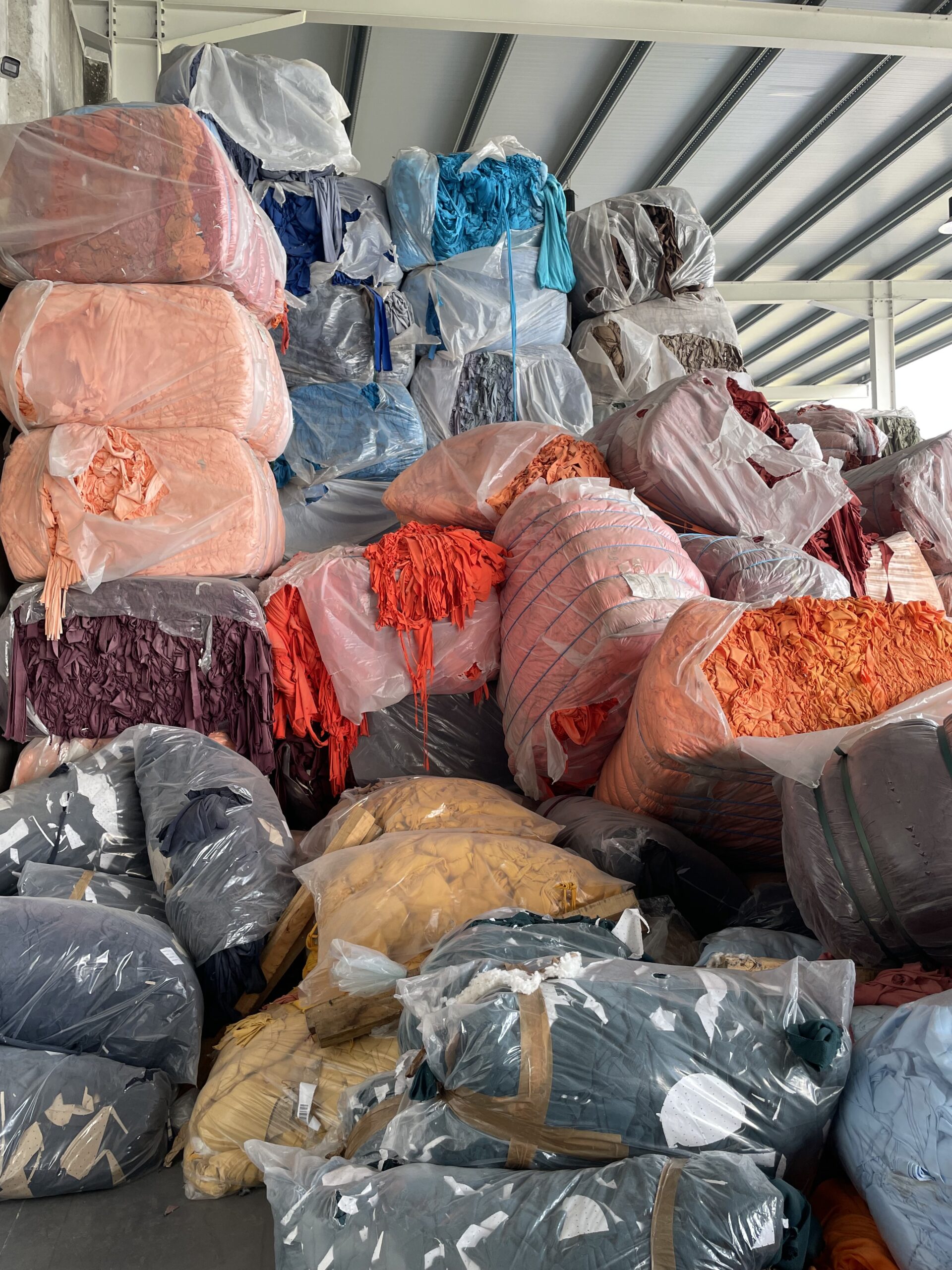
Sorting For Circularity Europe
The Sorting for Circularity Europe project was launched in early 2021 and initiated by Fashion for Good together with Circle Economy. The project was made possible by catalytic funding from Laudes Foundation and brand partners, adidas, BESTSELLER, Inditex and Zalando, with H&M Group as key project partners. The project addressed the need for data on textile waste in the market, identifying waste types and recycling opportunities.
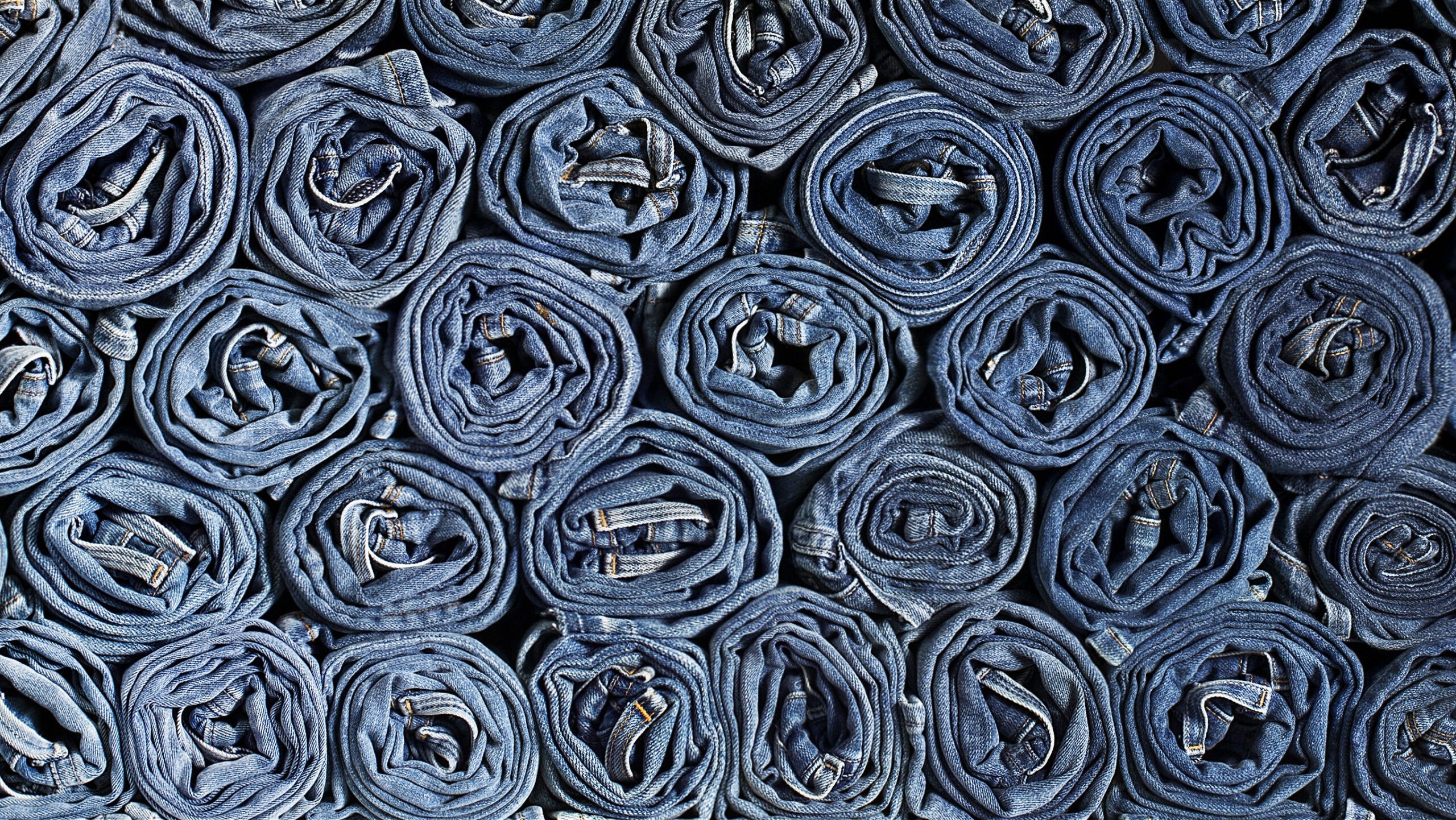
Sorting for Circularity Framework
Launched in 2021, the Sorting for Circularity Framework aims to bridge the gap between the textile sorting and recycling industries by improving data collection on textile waste volumes and characteristics (such as composition, quality and colour). This initiative was designed to address the critical lack of information and implementation needed to enhance textile waste management and recycling processes using sorting and traceability.

Future Forward Factories
The “Future Forward Factories” project, initiated by Fashion for Good, focuses on transforming tier 2 processing in the textile industry through innovative low-impact, decarbonisation solutions. It aims to generate actionable blueprints for factories of the future that combine renewable energy and technology upgradation including mostly dry processing innovations. These blueprints take into account the macro geographical factors that are customised for every product to achieve next-zero facilities with a strong return on investment. The blueprint also takes into account the Just Transition lens to ensure that the transitioning from a conventional to Future Forward Factories is inclusive and people-centric.
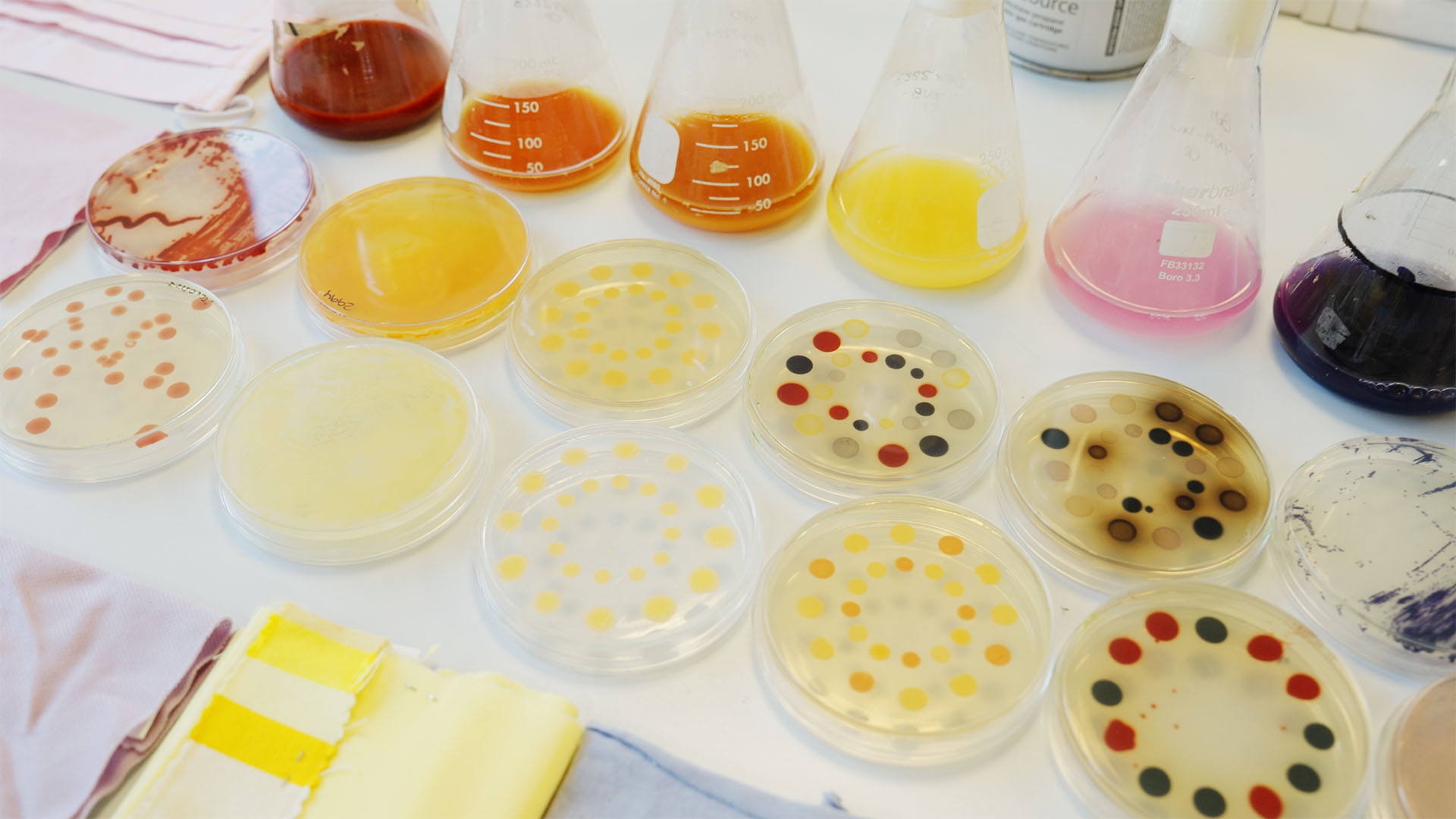
Dyestuff Library
This project was designed to address the gap in knowledge and infrastructure for sustainable dyes by developing a tool to identify, assess, and select innovative dyestuffs based on specific metrics and fabric requirements. The project collaborates with brands, supply chain partners, and industry stakeholders to conduct comprehensive evaluations, aiming to facilitate an industry shift toward sustainable dye options. Structured in multiple rounds, each involving five innovators, the project includes trials at both lab and pilot scales, with support and guidance for participating innovators.

From Waste to Black Pigment
The aim of the project was to validate the use of black pigments derived from waste materials to replace conventional carbon black from virgin fossil fuels in dope dyeing applications. The aim is to reduce the environmental impact of textile dyeing by using renewable, eco-friendly pigments sourced from waste.

Renewable Carbon Project
The aim of the project was to test and validate the technical feasibility of the different PHA polymer and composite resins to make mono and multifilament fibres. Fashion for Good worked with the Nonwovens Innovation & Research Institute (NIRI) to run the melt spinning trials to allow for a comparative evaluation. The initial scope of the project also included end of use testing including degradation testing. However the project partners decided to prioritise additional spinning trials over degradation testing.
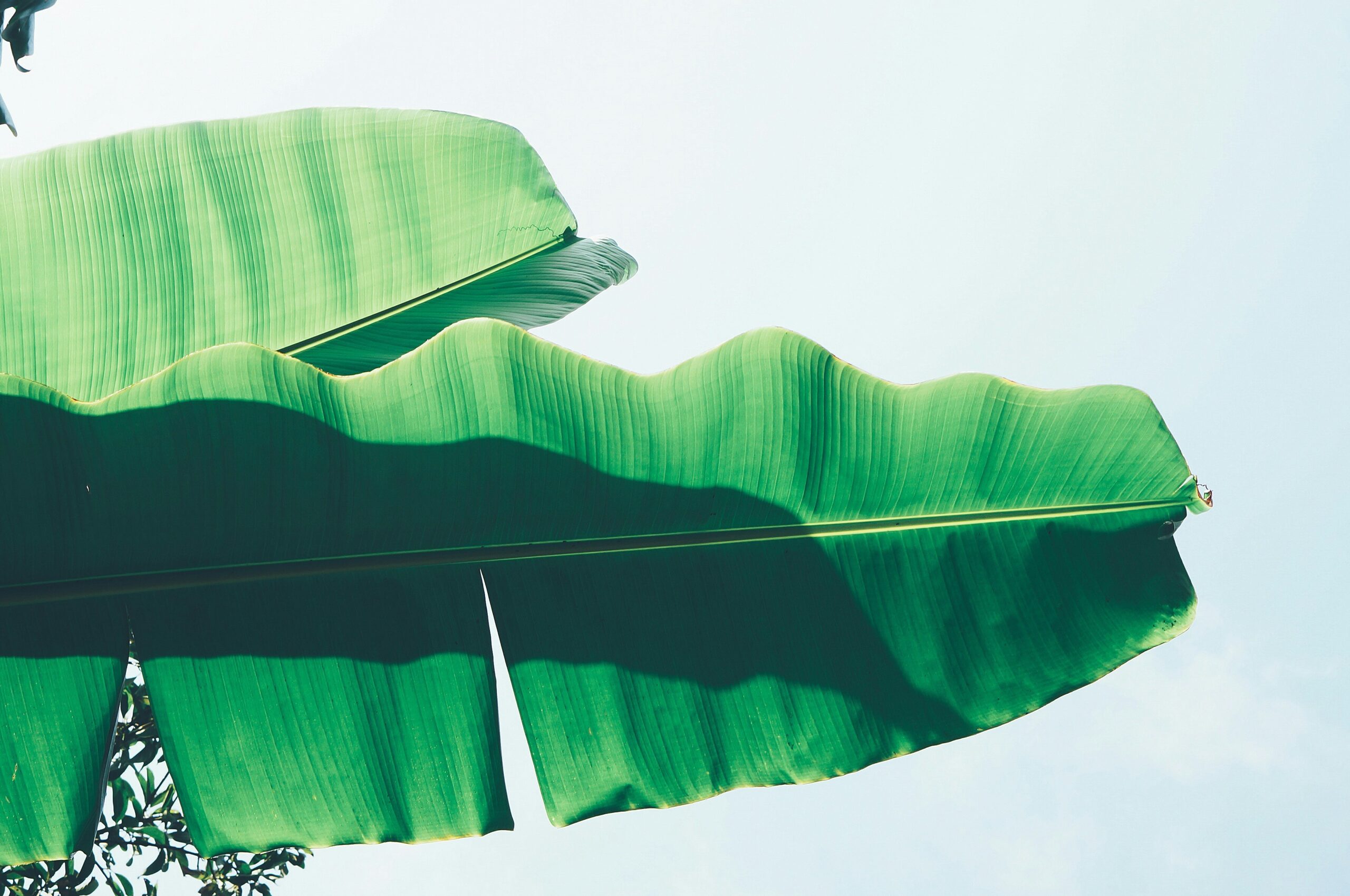
Agriwaste Natural Fibres
The aim of the project was to explore the use of agricultural residues to produce natural fibres, reducing reliance on conventional fibres like cotton. Building on the findings of the Laudes Foundation commissioned report ‘Spinning Future Threads’.

Materra Pilot
The aim of the pilot was to test and refine Materra’s technology to grow extra long staple cotton at a pilot farm, as historically this variety of cotton has not been grown in large volumes in this region due to specific climatic requirements for cultivation.
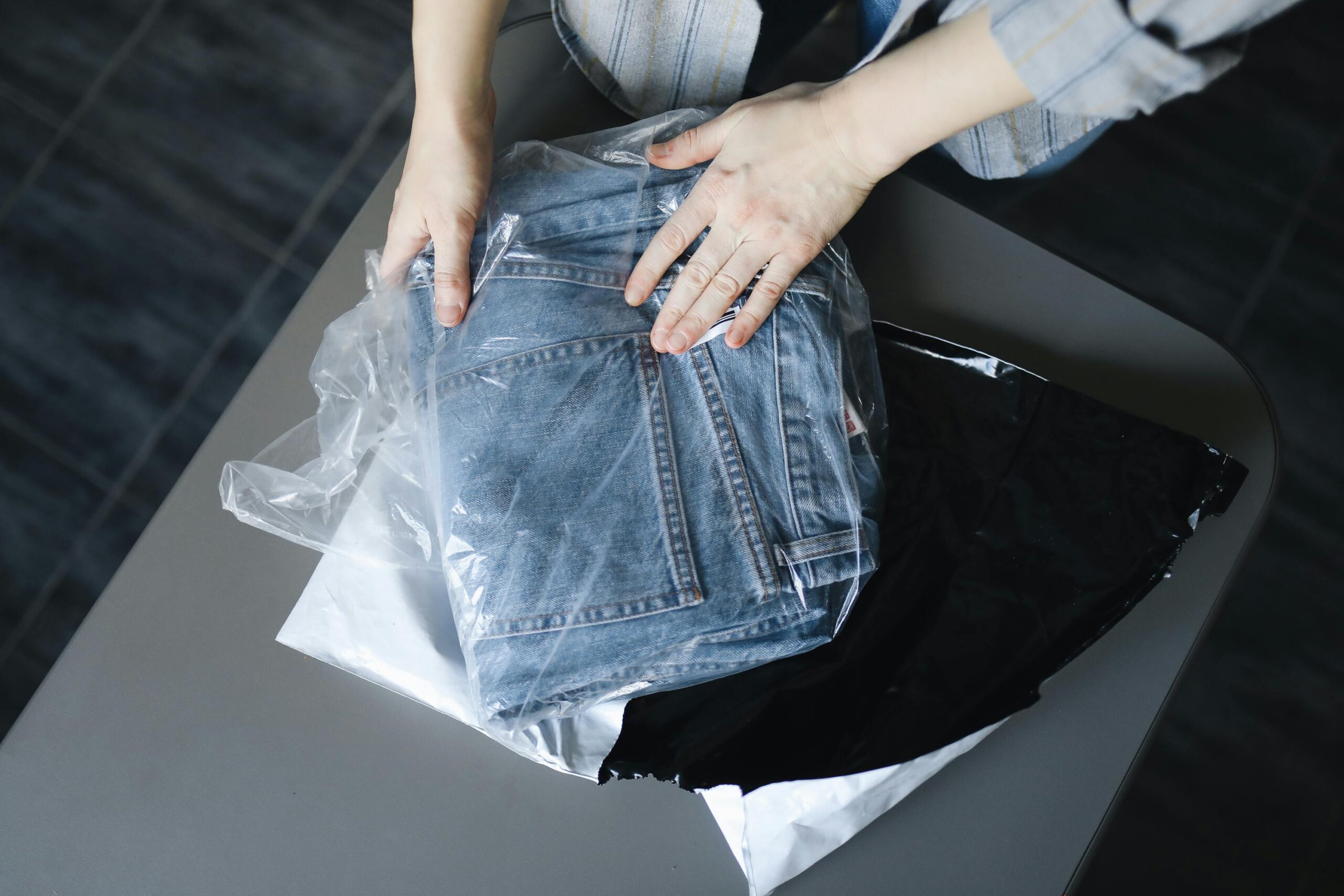
Reusable Packaging Pilot
This project focused on reusable packaging in the fashion e-commerce industry. It examined the environmental impact of transitioning from single-use to reusable packaging solutions, aiming to reduce plastic waste and carbon emissions. The study highlighted the variables that influence the viability of reusable packaging and offers insights on implementation and scaling strategies.

The London Polybag Collection Scheme Pilot
The London Polybag Collection Scheme Pilot aimed to address the low recycling rates of polybags used in the fashion industry by trialling a scalable recycling infrastructure for collecting and processing polybag waste into new materials.
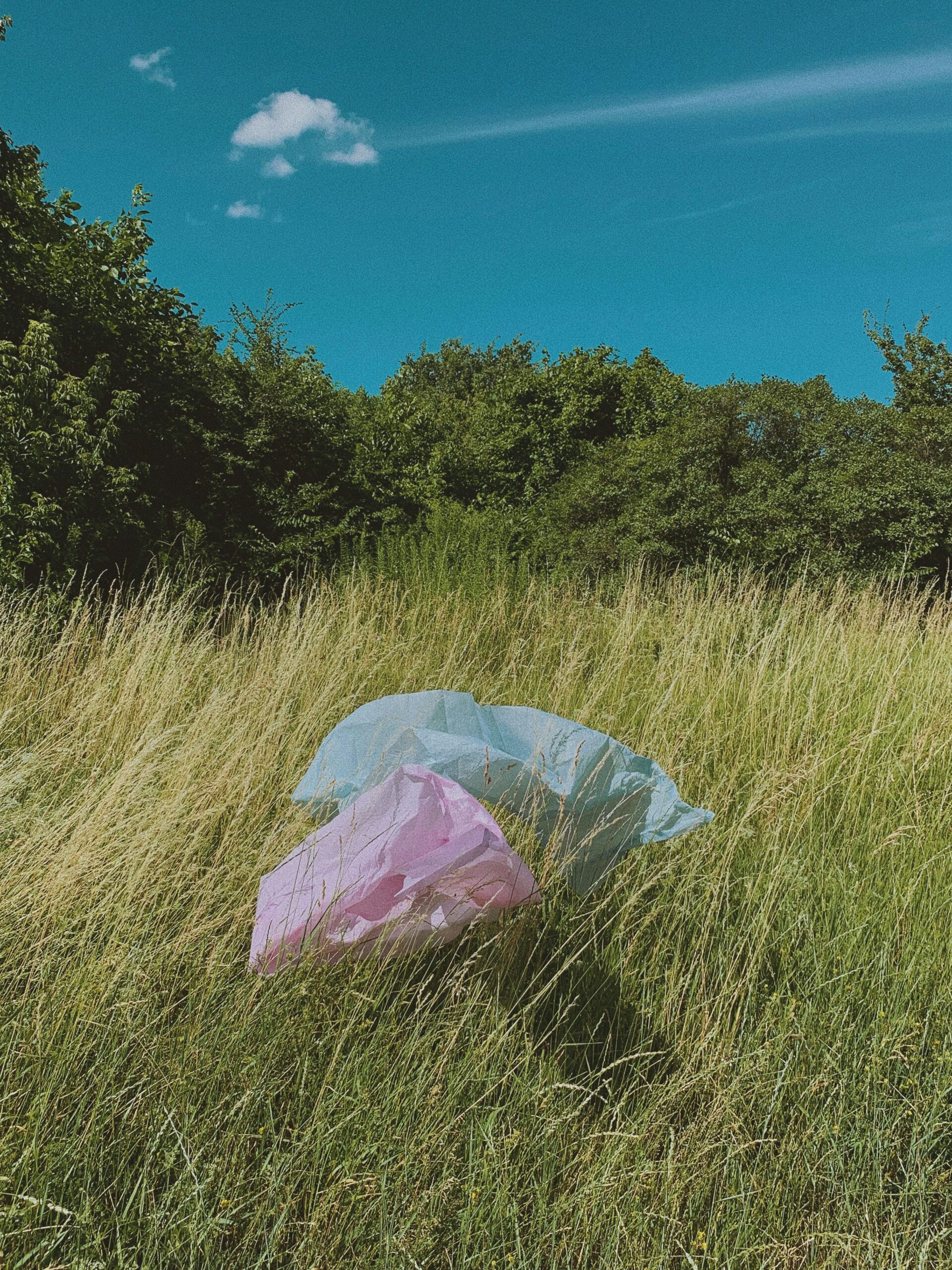
Home-Compostable Polybag Project
The aim of the project was to explore and validate bio-based, home-compostable polybags. To assess their suitability as a sustainable alternative to conventional fossil-fuel-based plastic packaging, addressing the fashion industry’s plastic waste problem.

The Circular Polybag Pilot
The aim of the pilot was to tackle the environmental issues caused by virgin polybags in the fashion industry. This industry-first pilot aimed to create a closed-loop recycling solution for polybags, using post-consumer polybag waste and achieving a high level of recycled content suitable for industry needs.
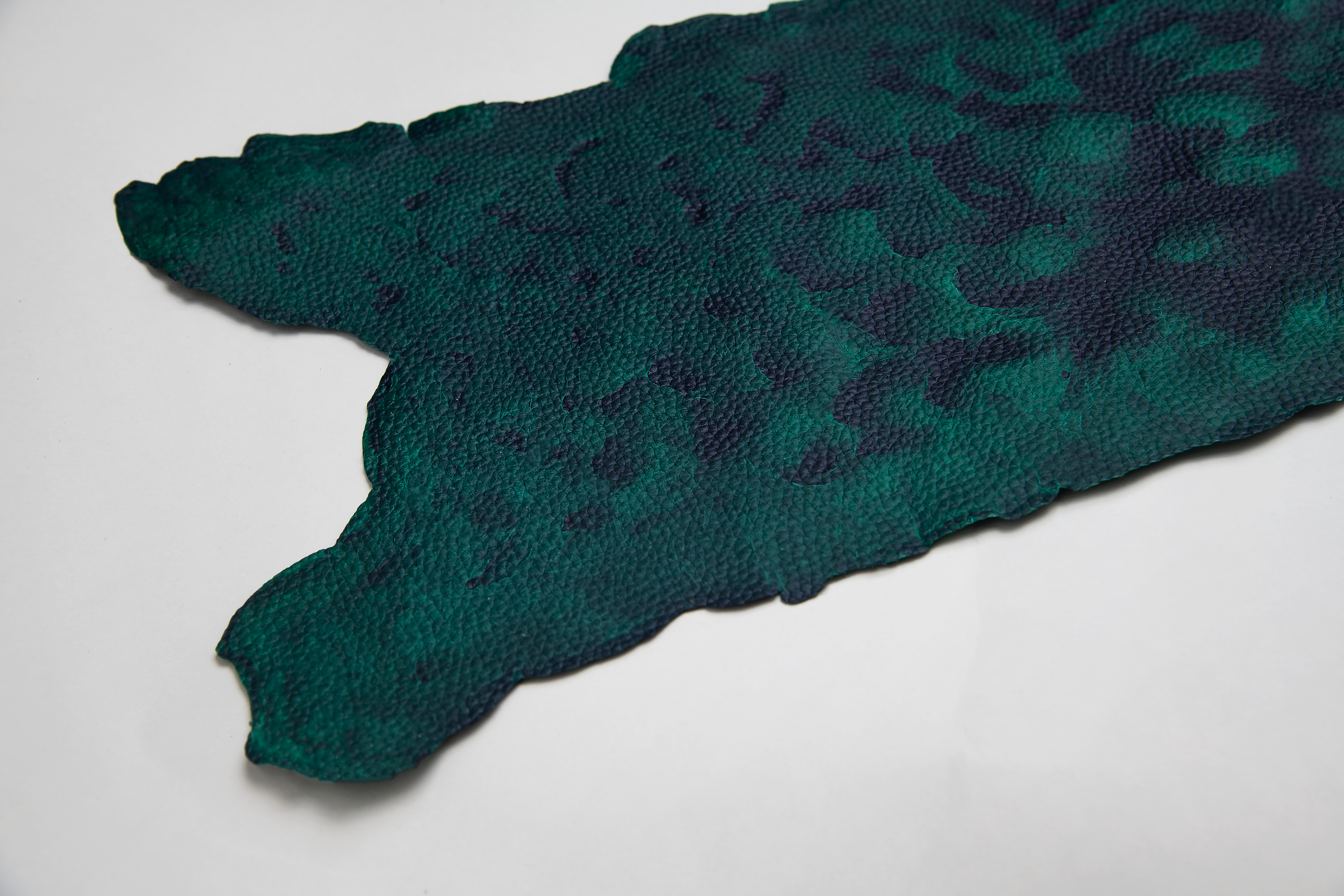
Ecovative Collaborative Pilot
The aim of the pilot was to develop and test the next generation of mycelium-based alternatives to leather and foam materials. This project, spanning from December 2021 to March 2024, involved collaboration with major fashion brands to create sustainable materials suitable for consumer goods.

Biophilica Pilot
This pilot aimed to test, refine, and scale Treekind®, an alternative to animal and synthetic leathers made from green waste. The project focused on assessing the material’s performance, scalability, and manufacturing capabilities.

Full Circle Textiles Project – Polyester (FCTP-P)
The aim of the Full Circle Textiles Project – Polyester (FCTP-P) is to validate and scale promising technologies in polyester chemical recycling and to encourage financing and offtake commitments in the fashion industry. The project builds on the framework and lessons of the Full Circle Textiles Project – Cellulosics (FCTP-C), which focused on investigating economically viable and scalable solutions for cellulosic chemical recycling. It brings together a consortium of stakeholders including brands, innovators, supply chain partners and catalytic funders – a structure that has proven successful in driving and scaling disruptive innovation in the industry. This is an ongoing project.
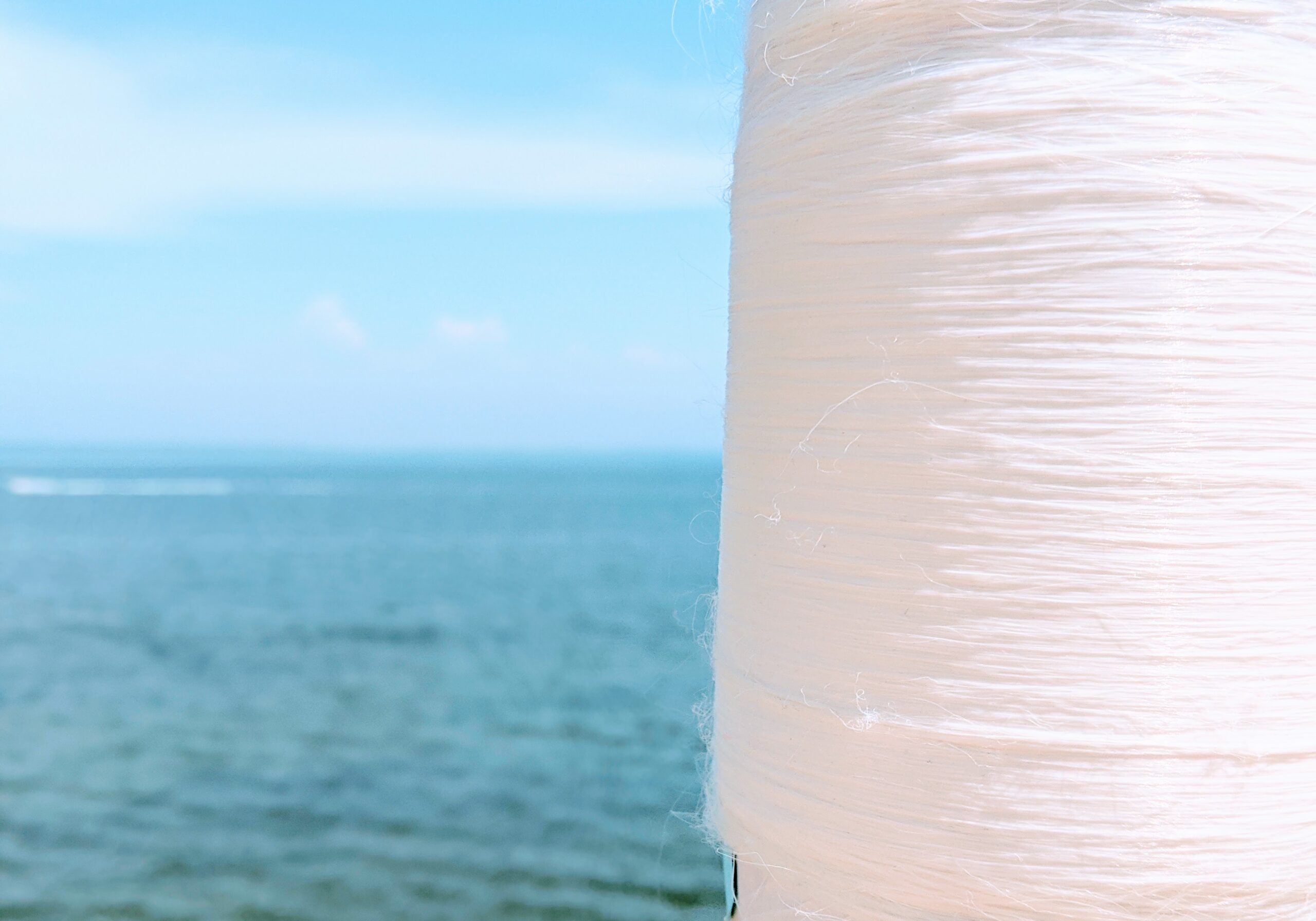
Kintra Fibers Project
Fashion for Good alumni, Kintra Fibres produces a biopolymer which is a replacement for virgin polyester. Polybutylene succinate or PBS is a biopolymer made using industrial sugarcane as a feedstock, it is also biodegradable in aerobic conditions.
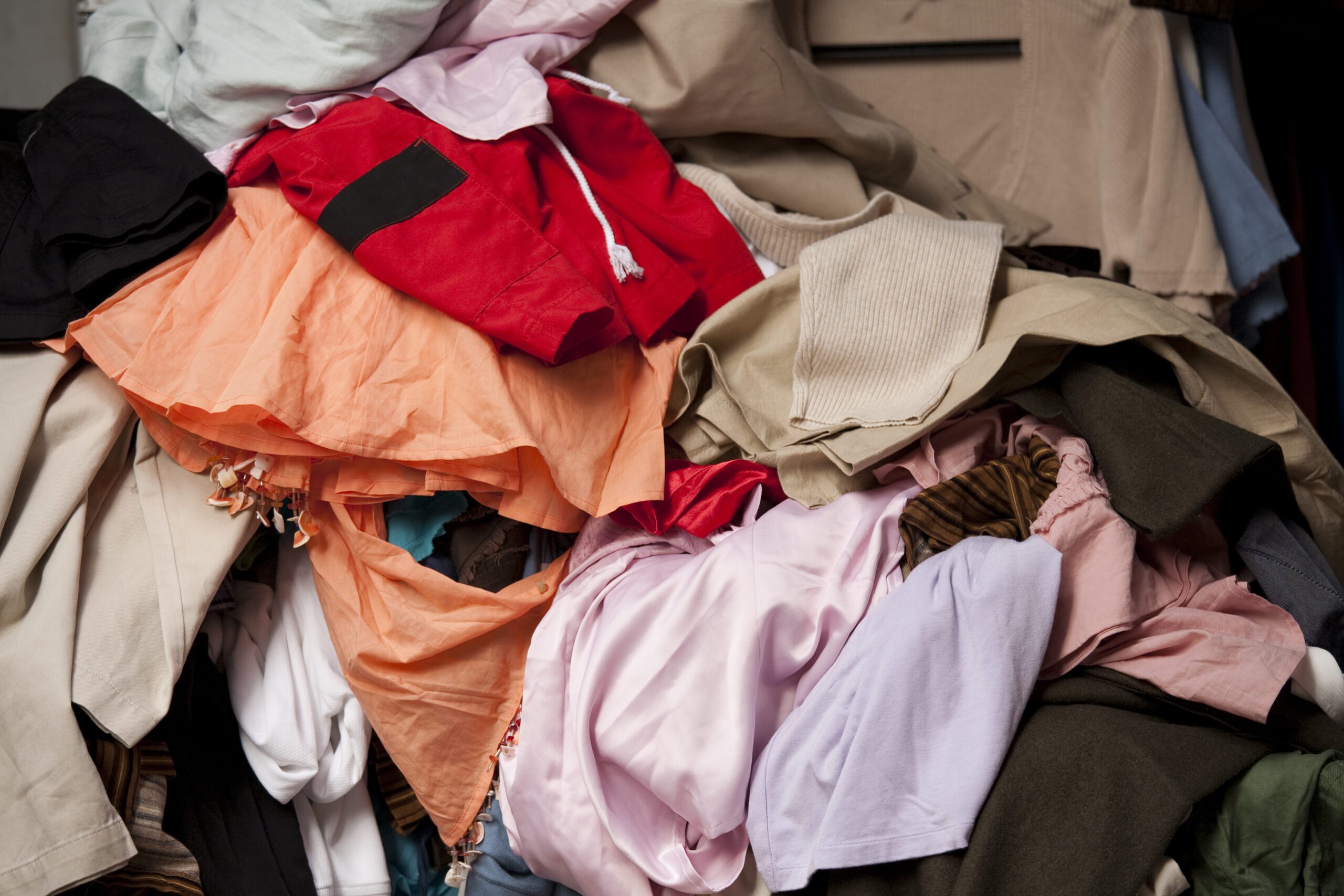
Full Circle Textiles Project – Cellulosics (FCTP-C)
The ambition of the FCTP-C Project was to validate economically viable and scalable promising technologies in cellulosic chemical recycling from a select group of innovators to tackle these issues. Leading global organisations Laudes Foundation, Birla Cellulose, Kering, PVH Corp. and Target joined Fashion for Good to explore the disruptive solutions, with the goal of creating new fibres and garments from used clothing and ultimately drive industry-wide adoption.

D(R)YE Factory of the Future
Fashion for Good launched D(R)YE Factory of the Future in January 2022 in collaboration with brand partners Kering, adidas, PVH Corp. and manufacturing partners Arvind Limited and Welspun India with the aim of validating the most promising technology combinations in pretreatment and colouration processing steps to support the widespread adoption of mostly waterless innovations within the textile industry.
